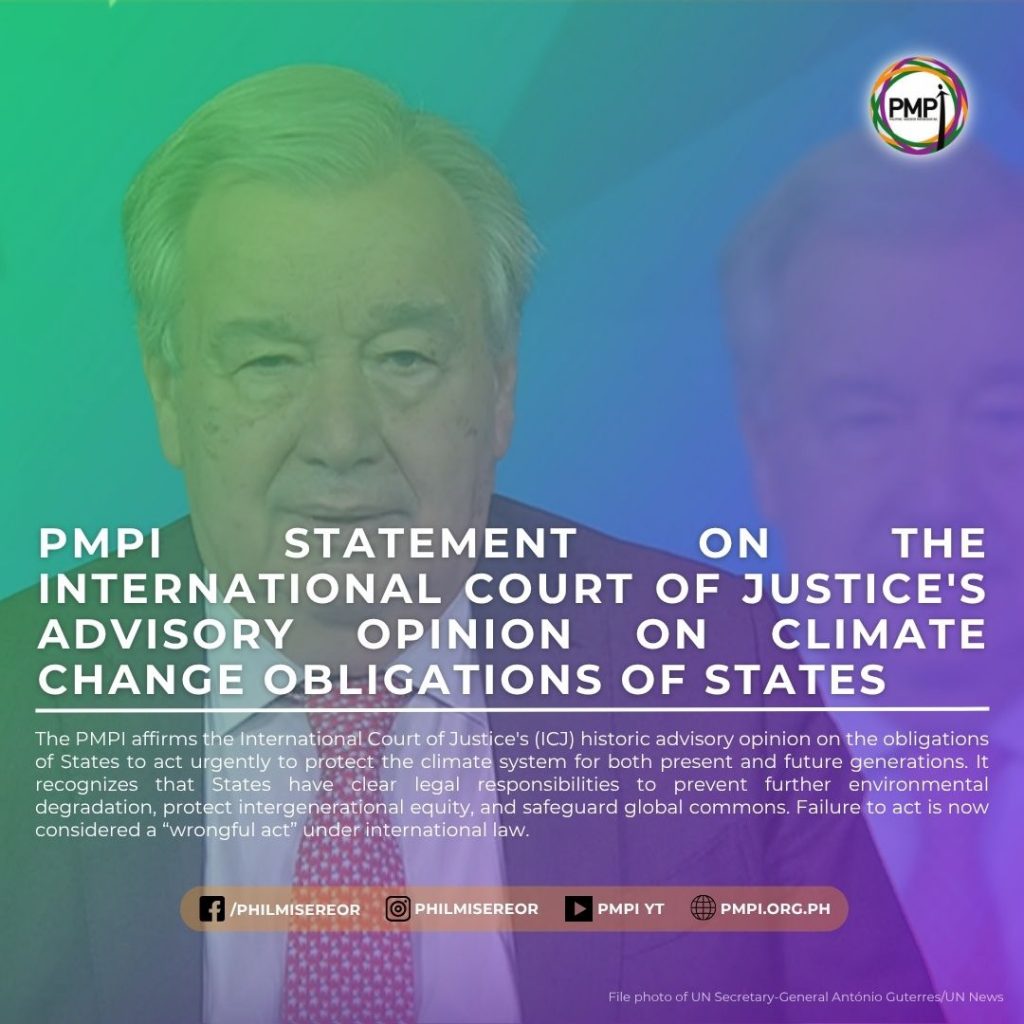The Philippine Misereor Partnership, Inc. (PMPI) affirms the International Court of Justice’s (ICJ) historic advisory opinion on the obligations of States to act urgently to protect the climate system for both present and future generations1. It recognizes that States have clear legal responsibilities to prevent further environmental degradation, protect intergenerational equity, and safeguard global commons. Failure to act is now considered a “wrongful act” under international law.
As a faith-based social development, and advocacy network committed to Climate Change Adaptation and Mitigation and Disaster Risk Reduction Management, Sustainable Agriculture and Fisheries Resources Conservation Management, Anti-mining Campaign, and the advancement of the Rights of Nature, PMPI celebrates this development as a timely and necessary reinforcement of our collective efforts for environmental protection, social equity, and intergenerational justice.
The ICJ’s recognition of the legal duties of States to prevent significant environmental harm aligns with our call for systemic transformation. In the Philippines, we are urgently calling for the passage of the Rights of Nature Bill, which seeks to recognize natural ecosystems, populations, and processes as legal entities entitled to certain inherent and inalienable rights, including the right to exist, flourish, regenerate, and be restored. The bill transforms the way we relate to nature, no longer as property or resource, but as a rights-bearing entity that deserves legal protection.
The ICJ’s advisory opinion underscores the urgency of institutionalizing this legal reform and boosts PMPI’s campaign to recognize nature as a rights-bearing entity; empowers citizens to act as stewards and file legal actions to prevent nature’s degredation; imposes severe penalties for ecological destruction; establishes funds and restoration programs that benefit the ecosystem directly; and protects biodiversity and intergenerational equity in the face of climate threats and exploitative development. Furthermore, the ICJ’s opinion confirms that climate inaction and environmental negligence can constitute violations of international law, particularly for the people and communities most vulnerable to climate-related impacts.
We urge the Philippine government to take initiatives based on the ICJ’s guidance and make bold, legally consistent steps toward ambitious climate action, environmental restoration, and the full recognition of the rights of nature.
The ICJ’s pronouncement affirms that to care for Earth is to care for life itself-and to violate nature is to violate the rights of all. Let us work together as stewards of the environment. Let the law become a protector of nature, not a tool for destruction.

